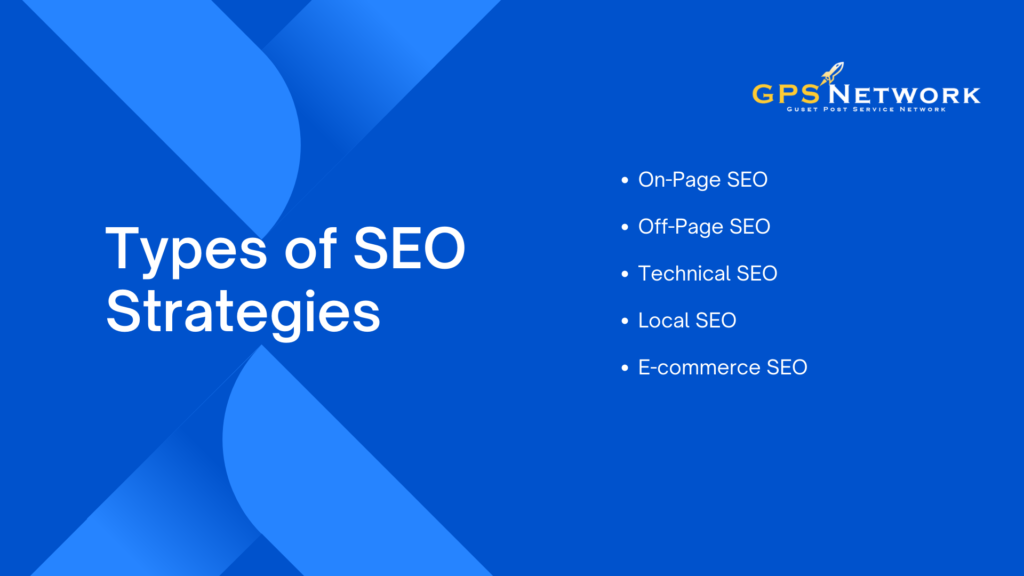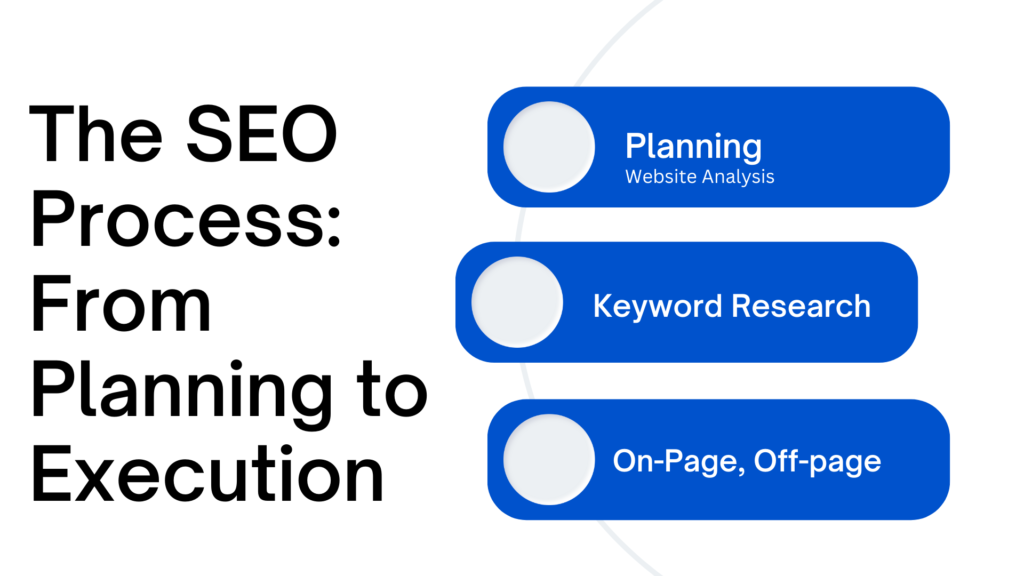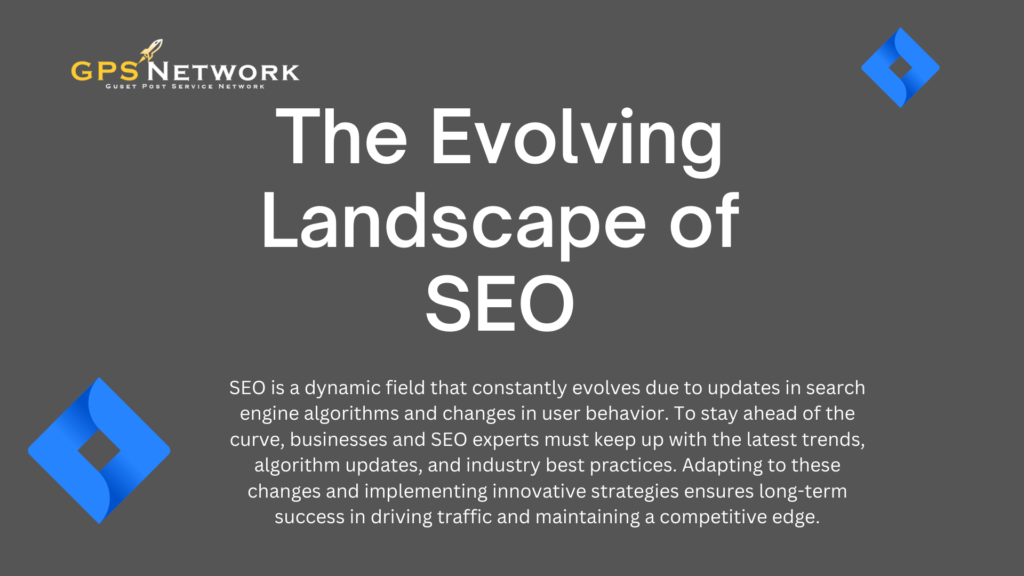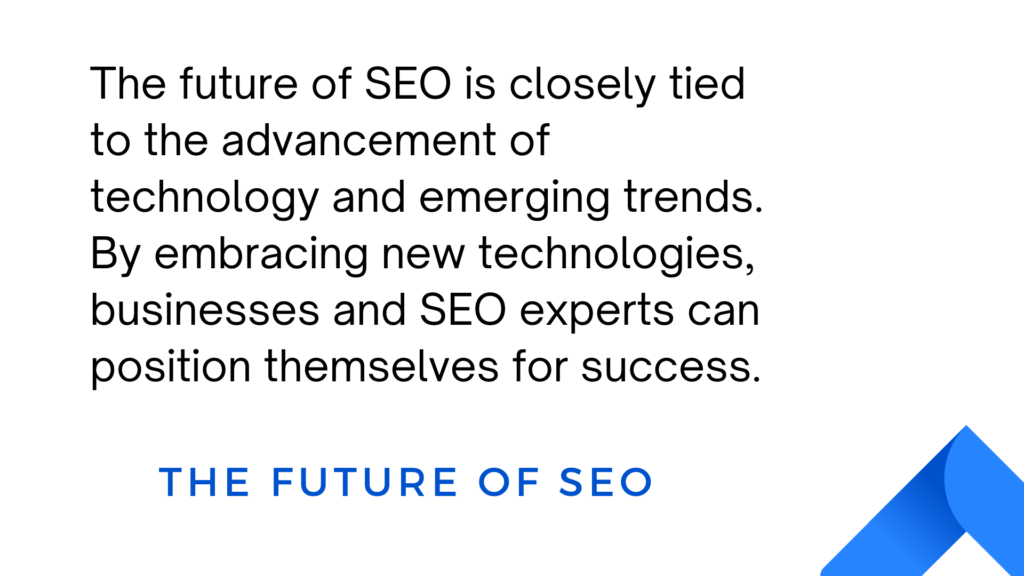In the digital age, where online visibility is paramount for businesses, the importance of search engine optimization (SEO) cannot be overstated. SEO is the art and science of enhancing a website’s visibility on search engine results pages (SERPs). To achieve this, many businesses rely on the expertise of an SEO agency and SEO experts. This article explores the significance of SEO in boosting website traffic and the pivotal role that SEO Agency Services and experts play in this process.
Table of Contents
Understanding SEO: A Comprehensive Overview
SEO, short for Search Engine Optimization, refers to the practice of improving a website’s visibility and ranking on search engine results pages (SERPs). It involves optimizing various aspects of a website, including its content, structure, and design, to make it more appealing to search engines. By aligning a website with search engine algorithms, SEO helps businesses attract organic traffic, increase visibility, and drive targeted visitors to their sites.
The Importance of SEO: Why Businesses Need It
In today’s digital landscape, where online competition is fierce, SEO is no longer an option but a necessity for businesses. The majority of online experiences begin with a search engine, making it crucial for businesses to be visible and accessible to their target audience. SEO enables businesses to reach potential customers actively by searching for products or services they offer, driving relevant traffic, and increasing the chances of conversions and revenue generation.
Different Types of SEO Strategies

SEO encompasses various strategies that can be employed to enhance a website’s visibility and ranking. Some common types of SEO include:
- On-Page SEO: This involves optimizing individual web pages by improving content quality, keyword usage, meta tags, headers, and URL structures.
- Off-Page SEO: This focuses on building the website’s authority and reputation through external factors like backlink building, social media engagement, and online mentions. It involves strategies such as guest post service, buying guest posts, and other methods to enhance the website’s visibility and ranking.
- Technical SEO: It involves optimizing the technical aspects of a website, such as site speed, mobile-friendliness, crawlability, and structured data markup.
- Local SEO: This type of SEO aims to optimize a website for location-specific searches, helping businesses attract local customers.
- E-commerce SEO: Specifically tailored for online stores, e-commerce SEO focuses on optimizing product pages, navigation, and user experience, and generating relevant traffic for increased conversions.
By understanding and implementing the appropriate type of SEO strategy, businesses can maximize their online visibility and reach their target audience effectively.
Role of SEO in Driving Website Traffic
In today’s competitive online landscape, having a website alone is not enough. To succeed, businesses need a steady flow of relevant traffic, and that’s where SEO comes into play.
SEO aims to optimize a website’s structure, content, and design, including content marketing strategies, to improve its ranking on search engine results pages. When a website appears higher in SERPs, it attracts more clicks and organic traffic. By incorporating effective content marketing strategies, such as creating valuable and engaging content, targeting relevant keywords, and promoting content through various channels, a website can enhance its visibility, attract a wider audience, and establish itself as a reputable source in the content marketing world. Implementing content marketing tips can further amplify the impact of SEO efforts, driving even more targeted traffic and improving the website’s overall performance.
The Power of SEO Agency

SEO agency is dedicated teams of professionals who specialize in optimizing websites for search engines. By employing the latest SEO techniques, these agencies help businesses gain a competitive edge by boosting their online visibility.
An SEO agency conducts thorough keyword research, on-page optimization, link building, and content creation, including blogger outreach services, to enhance a website’s organic ranking. This comprehensive approach ensures long-term success in driving targeted traffic and generating quality leads. By leveraging effective blogger outreach services, the agency can secure high-quality backlinks and build strong relationships with influential bloggers, further boosting the website’s authority and visibility in search engine results.
Benefits of SEO Agency Services

SEO Services encompass a wide range of strategies and techniques designed to enhance a website’s visibility. These services include keyword research, on-page optimization, technical SEO, link building, content marketing, and performance tracking. By implementing a holistic SEO strategy, businesses can increase their website’s visibility, improve user experience, and outperform their competitors in search engine rankings.
The SEO Expert: A Key Player in Boosting Traffic
SEO experts are professionals with in-depth knowledge and experience in optimizing websites for search engines. These experts stay updated with the latest search engine algorithms, trends, and best practices. They conduct detailed website audits, keyword analysis, and competitor research to develop effective SEO strategies. An SEO expert understands the unique needs of a business and tailors optimization techniques to drive targeted traffic and achieve specific goals.
Leveraging SEO Techniques for Targeted Traffic
SEO techniques, including link building services, are essential for attracting quality traffic that is relevant to a business’s niche or target audience. Through keyword optimization, businesses can align their website’s content with users’ search queries, ensuring their website appears in relevant searches. Additionally, link building services and SEO techniques such as content marketing help establish a website’s authority and credibility, attracting more organic traffic and potential customers. By leveraging link building services provided by a reputable link building agency, businesses can secure high-quality backlinks from authoritative websites, further enhancing their website’s visibility and search engine rankings.
SEO as a Long-Term Investment for Sustainable Growth
Unlike paid advertising, which stops delivering results once the budget runs out, SEO offers long-term benefits. By investing in SEO Agency Services, businesses can enjoy sustainable growth and ongoing visibility in search engine rankings. An SEO strategy that focuses on quality content, user experience, and optimization for relevant keywords sets a solid foundation for continued organic traffic and higher conversion rates.
The SEO Process: From Planning to Execution

Implementing a systematic approach is crucial for an effective SEO strategy. Here’s a breakdown of the SEO process from planning to execution:
- Planning:
- Define Goals: Determine the specific objectives you want to achieve through SEO, such as increasing organic traffic, improving keyword rankings, or boosting conversions.
- Target Audience: Identify your target audience and understand their search behavior and preferences.
- Competitor Analysis: Analyze your competitors’ SEO strategies to identify their strengths and weaknesses, and learn from their successes and failures.
- Budget and Resources: Allocate appropriate resources and budget for SEO activities.
- Keyword Research:
- Identify Keywords: Conduct thorough keyword research to discover relevant search terms and phrases that your target audience uses to find products or services similar to yours.
- Keyword Analysis: Evaluate the search volume, competition level, and relevance of each keyword to prioritize your efforts.
- Long-Tail Keywords: Consider targeting long-tail keywords, which are more specific and often have lower competition but higher conversion potential.
- Website Analysis:
- Technical Audit: Assess your website’s technical aspects, including site speed, mobile-friendliness, crawlability, and indexability. Address any issues that may negatively affect search engine rankings.
- Content Audit: Evaluate the quality, relevance, and uniqueness of your website’s existing content. Identify areas for improvement, such as updating outdated information or filling content gaps.
- User Experience (UX): Optimize your website’s design and navigation to ensure a positive user experience. Improve page load times, enhance mobile responsiveness, and make content easily accessible.
- On-Page Optimization:
- Title Tags and Meta Descriptions: Optimize title tags and meta descriptions with relevant keywords to improve click-through rates in search engine results.
- URL Structure: Create SEO-friendly URLs that are descriptive and include target keywords.
- Heading Tags: Use proper heading tags (H1, H2, etc.) to structure your content and signal its importance to search engines.
- Keyword Placement: Incorporate target keywords naturally throughout your content, including in headings, paragraphs, and image alt tags.
- Content Optimization: Ensure your content is informative, engaging, and valuable to users. Use relevant multimedia elements (images, videos) to enhance the content.
- Off-Page Optimization:
- Link Building: Develop a strategy to acquire high-quality backlinks from reputable websites in your industry. This can be achieved through content promotion, guest blogging, influencer outreach, or social media marketing.
- Social Signals: Encourage social media sharing and engagement to increase brand visibility and attract more traffic.
- Online Reputation Management: Monitor and manage your online reputation by responding to customer reviews and participating in relevant industry discussions.
- Continuous Monitoring and Adjustments:
- Analytics Tracking: Implement a robust analytics system (e.g., Google Analytics) to track website performance, user behavior, and SEO metrics.
- SEO Audits: Regularly conduct audits to identify areas of improvement and ensure your website stays optimized.
- Performance Tracking: Monitor keyword rankings, organic traffic, conversion rates, and other relevant metrics to measure the effectiveness of your SEO efforts.
- Algorithm Updates: Stay updated with search engine algorithm changes and adapt your SEO strategy accordingly.
- Continuous Optimization: Make data-driven decisions based on performance metrics and user feedback. Adjust your strategy to improve rankings and user experience over time.
Remember that SEO is an ongoing process, and it requires continuous effort, monitoring, and adaptation. By following these stages and continually optimizing your website, you can increase your visibility, attract more organic traffic, and improve your search engine rankings.
The Evolving Landscape of SEO: Staying Ahead of the Curve

The field of SEO is constantly evolving, and it’s essential to stay ahead of the curve to maintain a competitive edge. Here are some key points to consider in order to stay up-to-date with the evolving landscape of SEO:
- Stay Informed About Algorithm Updates: Search engines, like Google, regularly update their algorithms to improve search results and user experience. Stay informed about these updates and understand how they may impact your website’s rankings and visibility. Keep an eye on reliable industry sources, official announcements, and reputable SEO blogs to stay updated.
- Mobile Optimization: With the increasing use of mobile devices, optimizing your website for mobile is crucial. Mobile-friendly websites are favored by search engines and provide a better user experience. Ensure your site is responsive, loads quickly on mobile devices, and has a user-friendly interface for mobile users.
- Voice Search Optimization: The rise of voice assistants and smart speakers has led to an increase in voice searches. Optimize your content to align with voice search queries by targeting long-tail, conversational keywords and answering frequently asked questions concisely. Voice search optimization focuses on providing direct and succinct answers.
- User Experience (UX): User experience is a critical factor for SEO success. Search engines prioritize websites that offer a positive user experience. Ensure your website loads quickly, has clear navigation, provides valuable content, and is easy to navigate on different devices. Consider factors like readability, multimedia usage, and overall design to enhance user experience.
- Featured Snippets and Rich Results: Featured snippets are short, concise answers displayed at the top of search results. Aim to optimize your content to appear as a featured snippet, as it can significantly increase visibility and traffic. Additionally, leverage structured data markup to enhance your chances of appearing in rich results, such as knowledge panels, reviews, and event listings.
- High-Quality Content: Content remains a crucial aspect of SEO. Focus on creating high-quality, valuable, and relevant content that satisfies user intent. Long-form content tends to perform well, but it’s essential to strike a balance and ensure readability. Incorporate multimedia elements, such as images and videos, to enhance engagement and shareability.
- Local SEO: Local search has gained significant importance, especially for businesses with physical locations. Optimize your website for local SEO by including location-specific keywords, obtaining local citations, and optimizing your Google My Business profile. Encourage customers to leave reviews, as positive ratings can improve your visibility in local search results.
- E-A-T and Expertise: Google values expertise, authoritativeness, and trustworthiness (E-A-T) of websites. Establish yourself as an industry expert by creating high-quality, authoritative content, obtaining backlinks from reputable sources, and showcasing your expertise through guest blogging or speaking at industry events.
- Monitor and Analyze: Continuously monitor your website’s performance using analytics tools. Analyze data related to organic traffic, rankings, conversions, user behavior, and engagement metrics. This data will help you identify trends, areas for improvement, and make data-driven decisions to optimize your SEO strategy.
- Learn and Adapt: SEO is a dynamic field, and staying ahead requires a willingness to learn and adapt. Continuously educate yourself about new trends, strategies, and best practices. Attend industry conferences, participate in webinars, and engage with the SEO community to exchange knowledge and insights.
By staying informed, adapting to changes, and implementing innovative SEO strategies, you can stay ahead of the curve in the evolving landscape of SEO, drive more traffic to your website, and maintain a competitive advantage.
Measuring SEO Success: Key Metrics and Analytics
To evaluate the effectiveness of an SEO campaign, it is crucial to measure and analyze key metrics and data. Metrics such as organic traffic, conversion rates, bounce rates, keyword rankings, and backlink profiles, including the quality of bought backlinks and relevant backlinks, provide valuable insights into the performance of SEO efforts. By tracking and analyzing these metrics, businesses can identify areas of improvement, make data-driven decisions, and optimize their SEO strategies for better results. Monitoring the quality and relevance of backlinks acquired through buying backlinks or seeking relevant backlinks is particularly important as it impacts the website’s authority, visibility, and organic ranking.
The Future of SEO: Embracing New Technologies and Trends

As technology advances, SEO continues to evolve, presenting new opportunities and challenges. The future of SEO lies in embracing emerging technologies such as voice search, mobile optimization, artificial intelligence, and machine learning. Businesses, SEO Agency and SEO experts must adapt to these trends and leverage them to enhance user experiences, improve search rankings, and drive more targeted traffic in the ever-changing digital landscape.
FAQs
What is the definition of SEO?
SEO, or Search Engine Optimization, refers to the practice of optimizing a website’s content, structure, and design to improve its visibility and ranking on search engine results pages (SERPs), attracting organic traffic and potential customers.
Why is SEO important for businesses?
SEO is essential for businesses as it helps them increase online visibility, attract relevant traffic, and reach potential customers who are actively searching for products or services they offer. It improves the chances of conversions and revenue generation.
What are the different types of SEO strategies?
There are several types of SEO strategies, including on-page SEO, off-page SEO, technical SEO, local SEO, and e-commerce SEO. These strategies focus on different aspects of website optimization to enhance visibility and attract targeted traffic.
What is the SEO process?
The SEO process involves several stages, including keyword research, website analysis, on-page optimization, off-page optimization, and continuous monitoring and adjustments. It is a systematic approach to improve a website’s visibility and search engine rankings.
What is the role of an SEO agency?
An SEO agency specializes in optimizing websites to improve their visibility in search engine rankings. They employ various techniques like keyword research, on-page optimization, and link building to drive targeted traffic and generate leads.
How does an SEO expert contribute to boosting website traffic?
An SEO expert possesses in-depth knowledge of search engine algorithms and best practices. They conduct comprehensive audits, research keywords, analyze competitors, and develop customized strategies to enhance a website’s visibility and drive relevant traffic.
What are the essential SEO Agency Services for boosting website traffic?
Important SEO Agency Services include keyword research, on-page optimization, technical SEO, link building, content marketing, and performance tracking. These services work together to improve a website’s visibility, user experience, and organic ranking.
Is SEO a long-term investment for business growth?
Yes, SEO is a long-term investment. Unlike paid advertising, SEO offers sustained visibility and growth. By focusing on quality content, user experience, and optimization, businesses can continue to attract organic traffic and achieve higher conversion rates.
Conclusion:
In conclusion, the role of SEO in boosting website traffic cannot be underestimated. SEO is a vital component of any successful online marketing strategy, and businesses need to leverage the expertise of SEO agency and SEO experts to maximize their visibility and reach their target audience. By implementing comprehensive SEO strategies, businesses can attract relevant traffic, increase organic rankings, and ultimately drive conversions and revenue. It is essential to understand the different types of SEO techniques and stay updated with the latest trends and algorithm updates to stay ahead in the ever-evolving digital landscape. With SEO as a long-term investment, businesses can secure sustainable growth and establish a strong online presence.

